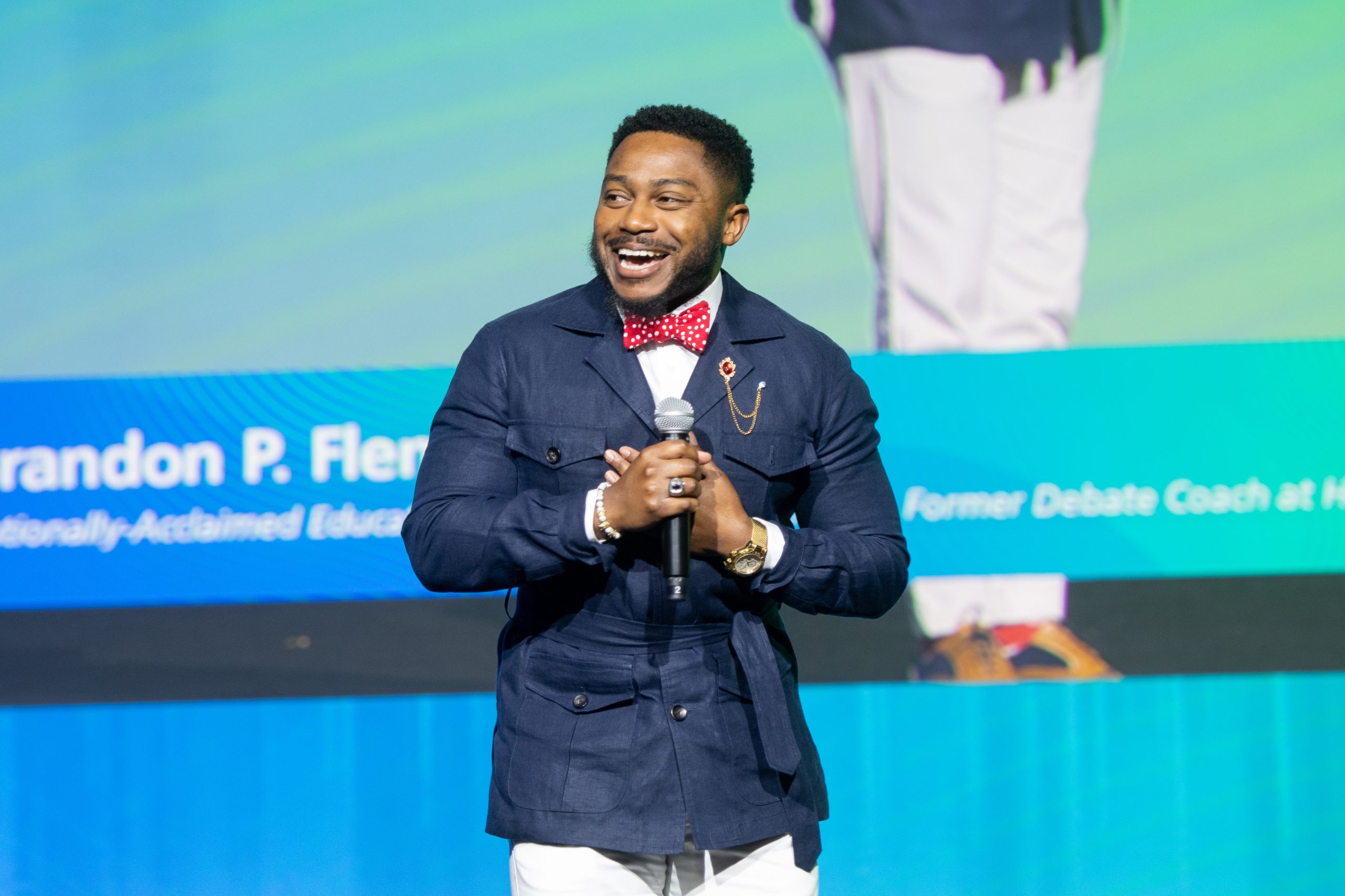CSBA’s 2022 Annual Education Conference and Trade Show in San Diego Dec. 1-3 attracted approximately 3,500 attendees, breaking recent attendance records, and included three insightful General Sessions.
Nationally acclaimed educator and award-winning author of Miseducated, Brandon P. Fleming, reminded attendees of AEC’s First General Session to lead with love.
The former Harvard University debate coach and founder and CEO of the Veritas School of Social Sciences has earned accolades including being named one of the 100 most influential African Americans in the U.S. in 2020 by The Root magazine and landing on Forbes’ 30 under 30 list. But before that, he was an at-risk youth looking for acceptance and understanding.
“Stories change people more than data ever will and the reason why is because stories are the gateway to empathy,” Fleming said. “It’s what allows you to stand in someone else’s shoes … and it’s what allows you to feel what other people feel even if you don’t share the same experiences.”
Fleming asserted that education doesn’t have a content issue but a connection issue, as too many educators know their subject matter — but not their students. Educators must connect with the hearts of the young people they’re trying to reach and not just their minds, he said.
While equity has become a buzzword or divisive term, Fleming said that most people don’t know what it means. He uses his story to demonstrate what equity looks like. Fleming recalled spending his childhood hating educators as they didn’t want to deal with the self-described “menace of middle school.”
“Everybody had a label for me, everybody had a judgment for me, but nobody took the time to ask the right questions,” Fleming said. What school staff didn’t know was that when the academic day ended, Fleming went home to an abusive father. “I carried that weight, and I carried that pain with me to school at a time where I did not know how to ask for help … I didn’t have the words to be able to articulate my pain and so I acted out,” Fleming said. “I want you to imagine how many young people might be sitting in classrooms in your school district, and they too don’t know how to ask for help. They need somebody with just enough compassion to ask the right questions.”
When his promising basketball career was cut short by an injury, Fleming dropped out of college. At 18, he was working at a vitamin factory when his boss told him he threw away his golden ticket when he left school.
He eventually made it back to a college campus and his struggle with his lack of foundational academic skills led him to cheat. A relationship with a professor who flagged one of his essays for plagiarism changed things for him. Instead of being accusatory, the professor showed compassion and got to know Fleming, helping him to redo the essay and introducing him to Black scholars. “She put my humanity before my education,” Fleming said.
By connecting with his mind and heart, she broke down a barrier. “That is the definition of equity. It’s our willingness to see people for who they are and to meet them where they are,” Fleming said.
Now at the Veritas School of Social Sciences, Fleming helps to recruit underserved youth who do not have prior debate experience and trains them to compete.
“Representation is the lens through which we dream. Representation is the lens through which we inspire. Why? Because young people cannot be what they cannot see,” Fleming said.
Read a recap of the Second General Session, featuring expert panels on state education funding and politics, here.





